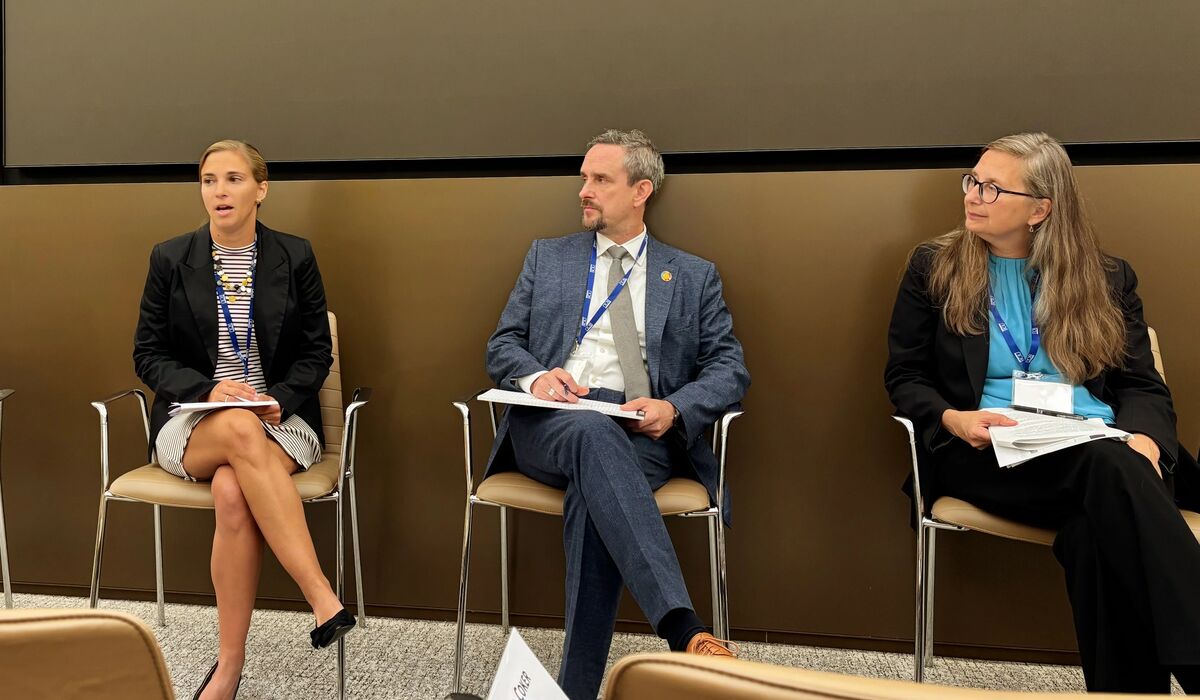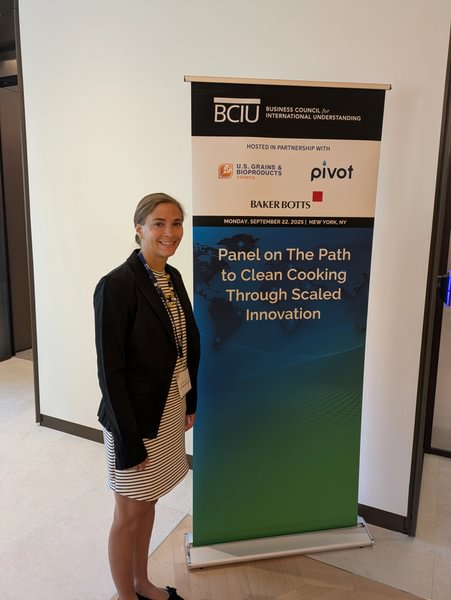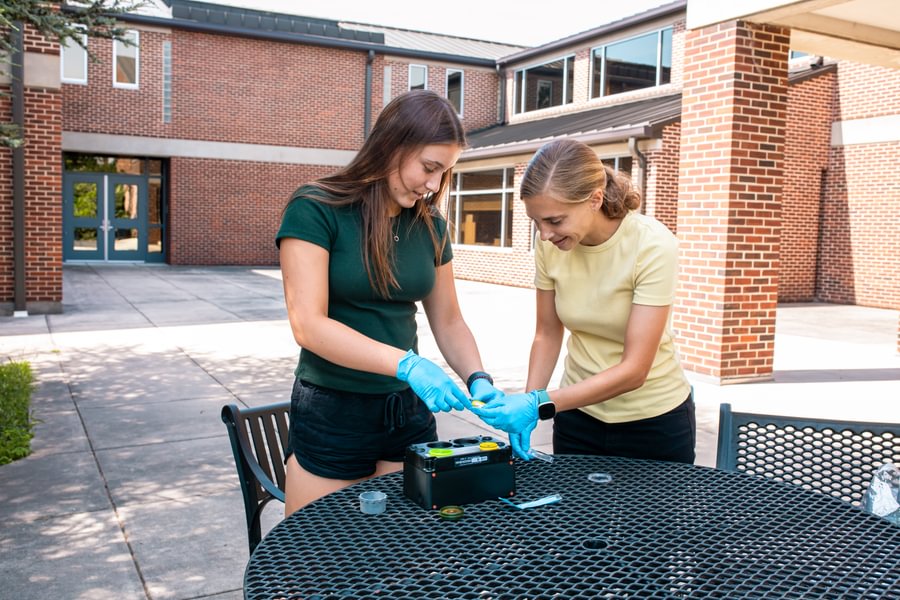
Health Sciences Prof. Megan Benka-Coker ’09 shared her research on household air pollution and the health impacts of exposure to biomass burning during a panel organized for the United Nations General Assembly’s 80th meeting in New York City.
On Sept. 22, Health Sciences Prof. Megan Benka-Coker ’09 participated in a panel discussion convened by the Business Council for International Understanding (BCIU) for the United Nations General Assembly’s 80th session (UNGA 80) in New York City.
The panel, titled “The Path to Clean Cooking Through Scaled Innovation,” was hosted in partnership with the U.S. Grains & Bioproducts Council, Pivot Clean Energy, and Baker Botts.
During the panel, Benka-Coker, an advisor to Pivot Clean Energy, shared her research on the health impacts of cooking with traditional fuels, such as firewood and charcoal, and the health benefits of transitioning to cleaner fuels or electricity for cooking.
Joining Benka-Coker on the panel were Dr. Fanny Missfeldt-Ringius, Energy Sector Management Assistance Program (ESMAP) practice manager for access and data at The World Bank Group, and Mikael Melin, director of partnerships and development for Sustainable Energy for All (SEforAll).

Discussion focused on developing policies and standards that promote clean cooking opportunities, primarily in sub-Saharan Africa. Clean cooking refers to using energy-efficient, non-polluting fuels and technologies, including biogas, electricity, ethanol, improved biomass stoves, and liquified petroleum gas (LPG). According to the Clean Cooking Alliance, approximately 2.3 billion people worldwide lack access to clean cooking solutions.
Learn more about Benka-Coker’s involvement in the BCIU panel.
Why were you invited to address this panel?
“I’m in a bioethanol working group spearheaded by the U.S. Grains & Bioproducts Council. The council was helping to put this panel on and reached out to see if I wanted to talk about the health component of clean cooking and its impacts.”
How did you prepare for your presentation?
“I worked with my colleagues at the U.S. Grains & Bioproducts Council and the nonprofit Pivot Clean Energy, which works in the bioethanol space. Their CEO and I worked on the presentation together for several weeks beforehand to get it down. The U.S. Grains & Bioproducts Council also circulated a few questions they would ask. It was definitely a different experience than presenting in class!”
Why is your research significant for society today?
“It’s of interest to the United Nations (U.N.) because the U.N. has sustainable development goals that they use to monitor progress globally on all sectors, including energy and poverty. Clean cooking is something that they would like to work on.
“Households in communities that don’t have access to electricity are cooking with firewood and charcoal. Using biomass fuels for cooking contributes to deforestation and has negative health impacts—respiratory and cardiovascular—especially for women who do the majority of the household cooking. There’s been a big push to provide access to cleaner cooking alternatives.
“The panel on bioethanol described the opportunities for cleaner-burning cookstoves. We advocate and promote bioethanol as a cleaner household cooking fuel for countries to explore not only for the household benefit on health, but also because it has the potential to create local jobs and reduce our dependence on fossil fuels.”

How does it feel to play a role in translating your research into policy actions?
“In public health, and in all disciplines, the goal is to impact society in some way. Helping facilitate the conversation around policies that enable cleaner cooking, and bringing that health component as the academic expert, was really awesome. The goal is for countries to develop policies that support these cleaner cooking initiatives, which would ultimately help populations.”
What does it mean to you to represent Gettysburg College on the global stage?
“It was wonderful to share that we’re doing great things here, too, and representing Gettysburg College in that space was fantastic. The opportunity to work with the important U.N. actors on this topic was very exciting, and I hope to do more work in the policy space in the future.”
Discover how Gettysburg College can help you prepare for a future of impact in public health.
Related Links:
External Links:
By Michael Vyskocil
Photos provided by Health Sciences Prof. Megan Benka-Coker ’09, unless otherwise noted
Posted: 11/17/25